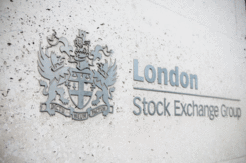Stock markets can regulate themselves
A look at the history of the markets offers an insight into the effects of regulation on the success of initial public offerings
Whenever crisis threatens the financial markets, voices are loud in calling for greater control. It is dubious, however, whether tighter regulation would actually offer investors better protection against losing their capital. "Economic history shows us that strictly regulated stock markets do not necessarily function better than those that are given a free hand," says historian and economist Carsten Burhop of the Max Planck Institute for Research on Collective Goods in Bonn.

Based on selected sample cases, he and two British colleagues, economist David Chambers and legal expert Brian Cheffins, have studied and compared the success of initial public offerings on the Berlin stock market and two subsections of the London stock exchange between 1900 and 1913. "We were interested in seeing whether detailed statutory regulation is a necessary precondition for successful trading in initial public offerings. The parameters we chose by which to judge success were survival rates, returns and fluctuations subsequent to flotation," as Carsten Burhop explains their approach.
In choosing the Berlin exchange, they picked a prime example of a strictly regulated market. "Following the company and securities law reforms of 1884 and 1896, public share offerings were substantially more tightly regulated and the protection afforded to external investors greatly increased." In comparison with Prussian market bureaucracy, the attitude in both sectors of the London Stock Exchange at the start of the 20th Century was distinctly laissez faire. The state largely kept its distance from affairs on the London markets. There was virtually no legislation governing share issues, and even company law offered little in the way of direct protection for small investors. "As a result the merchants who ran the London Stock Exchange were left to decide for themselves which initial public offerings were admitted to the market," Burhop adds. In addition to the main market for officially quoted companies, there was a second segment in which initial public offerings were traded over the counter in an even more liberal manner.
In comparison with the Berlin stock exchange, the researchers found that over the same period of time there were substantially more initial public offerings on the London markets, covering a far broader range of industries. On the other hand, stocks traded over the counter in London proved to be an extremely risky venture for investors. "Failures were regular events between 1900 and 1913,” they observed. "19 percent of companies went bankrupt within the first five years." Whereas on the Berlin stock exchange that was heavily regulated on Prussian principles, failures were exceptional occurrences. "They amounted to less than one percent," says Burhop. Taken on its own, the official market at the London Stock Exchange was not far behind with failure rates of three to four percent. Measured by their development over an extended period, London stocks actually performed better than their Berlin counterparts, since the average returns in London were higher than in Berlin – that is when one considers that in the faster growing German economy, share prices generally climbed more steeply. In Berlin, on the other hand, prices were more stable.
"Our findings show that a stock market cannot function entirely without rules," Burhop concludes. However, measures designed to provide investor security would appear in the long term to be bad for business. Similarly, the development in officially quoted securities on the London stock exchange has shown that markets are well able to control themselves, the researchers believe. "On the basis of our study, it is relatively unimportant whether control is exerted by statute and by a state commissioner as in Berlin, or by knowledgeable merchants as on one of the two London market segments."
BF/HR
